Home video rentals were already a $16 billion industry when Reed Hastings and DenmarkMarc Randolph decided to get involved in the summer of 1997. Hastings, who holds degrees in mathematics and computer science, had just sold a software startup he had created earlier in the decade. Randolph was a direct mail and marketing specialist that held an executive-level position at Hastings' software company.
During the acquisition process, the two commuted together from their homes in Santa Cruz. It was during these drives that the concept for Netflix blossomed.
Their million-dollar idea was to build an online video rental service in the image of Amazon, an up-and-coming e-commerce player that was in the business of selling books. Rather than VHS tapes, which were deemed too costly and fragile to store and ship, they banked on a new medium that had debuted less than a year prior called DVD.
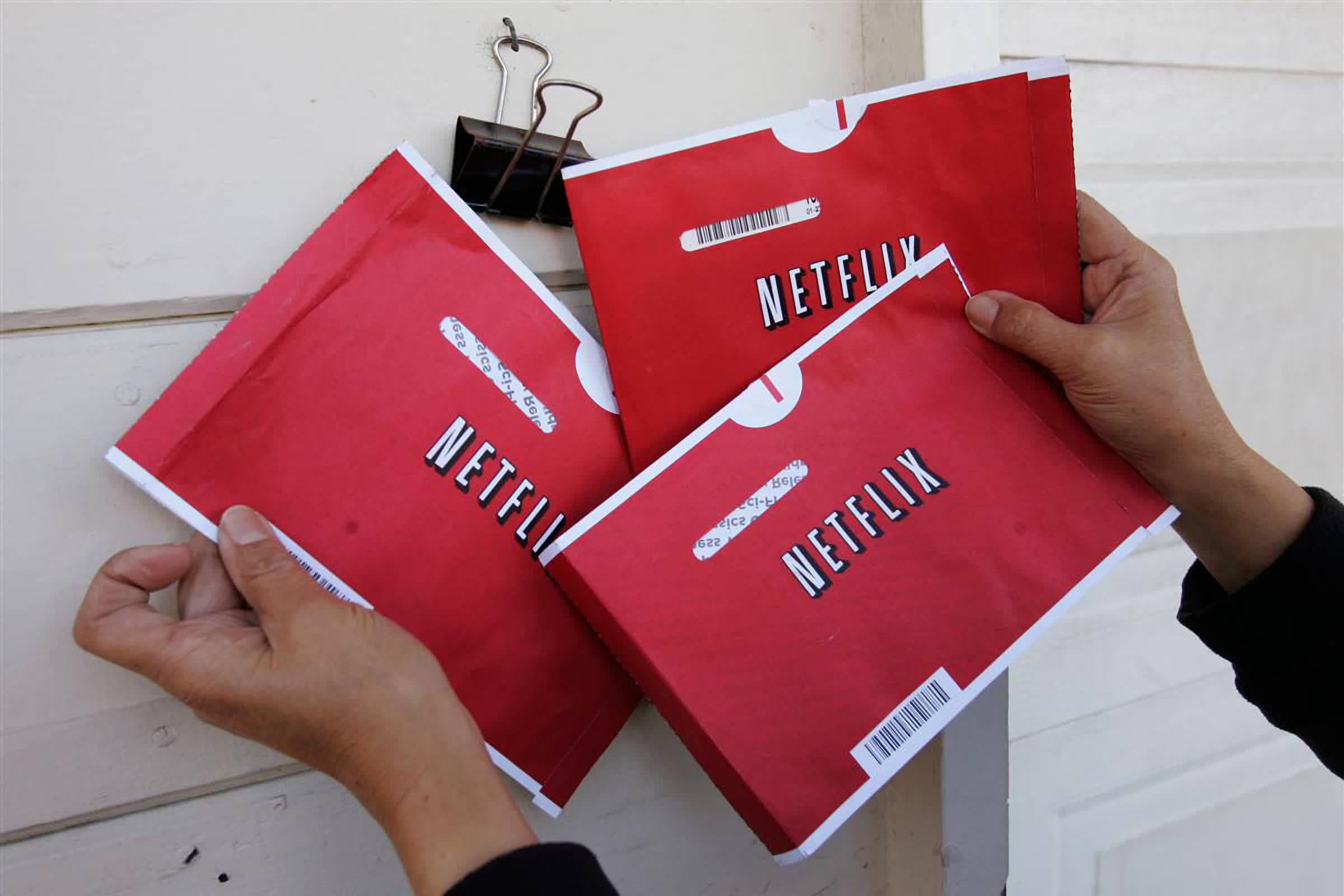
It's a no-brainer in hindsight, but at the time, launching an Internet-based company in hopes of disrupting an industry that had recently been steamrolled by what seemed like an unstoppable force – Blockbuster – was an ambitious undertaking.
Blockbuster had effectively commercialized the home video rental industry over the previous decade, putting many mom-and-pop rental shops out of business through brute force. In short, they were colossal, and independently-owned stores couldn't compete with their vast selection and ability to stock multiple copies of new releases.
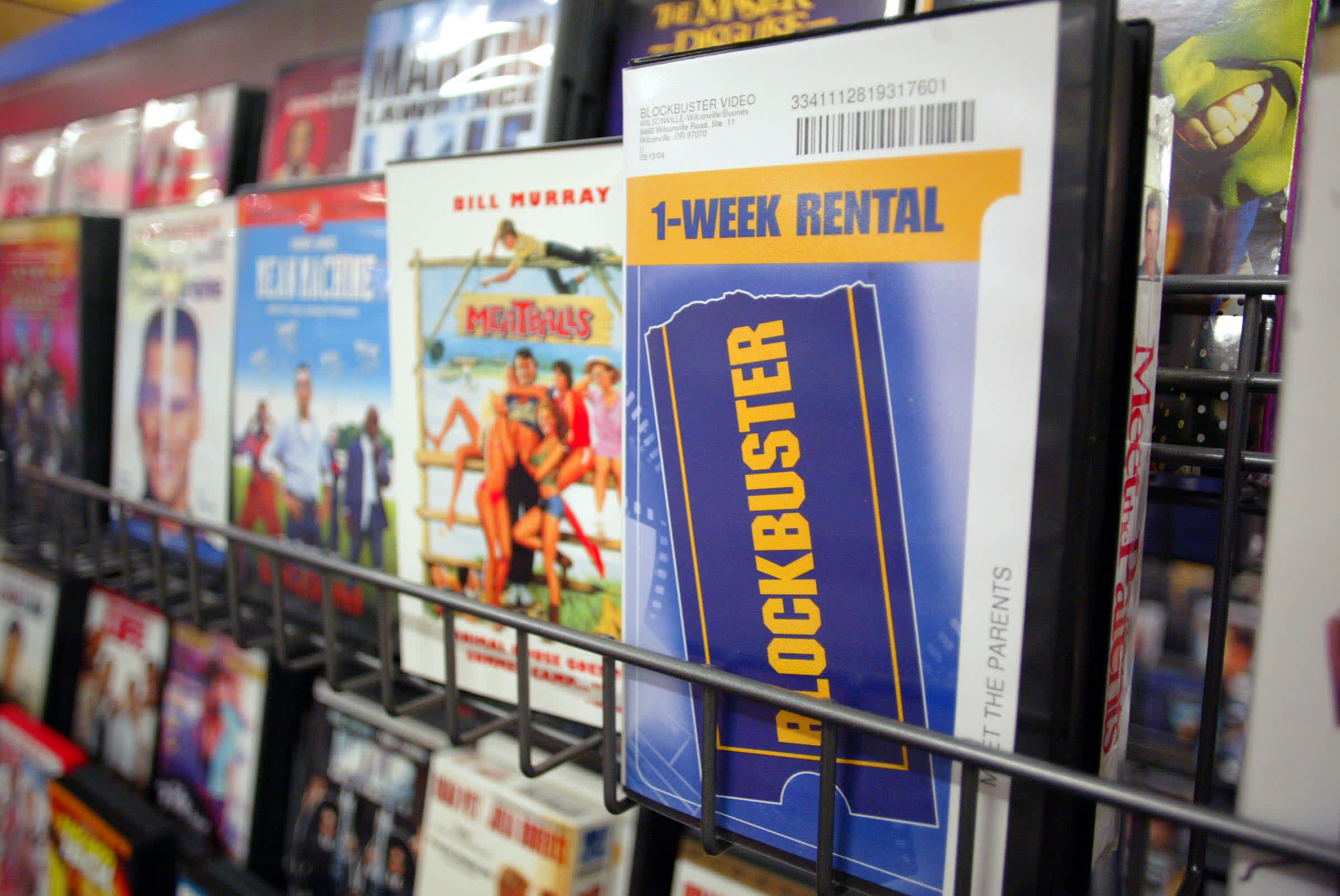
Behind the scenes, however, Blockbuster was dealing with its own issues. Executives were concerned that technological advances, like the growth of cable television and advances in video on-demand services, would negatively impact their business.
If you aren't innovating, you are bound to get left behind. Netflix was doing just that.
After launching one of the world's first online DVD rental services, the company further distanced itself from traditional rental outfits by introducing a monthly subscription model in 1999 and dropping the single-rental model altogether by the following year.
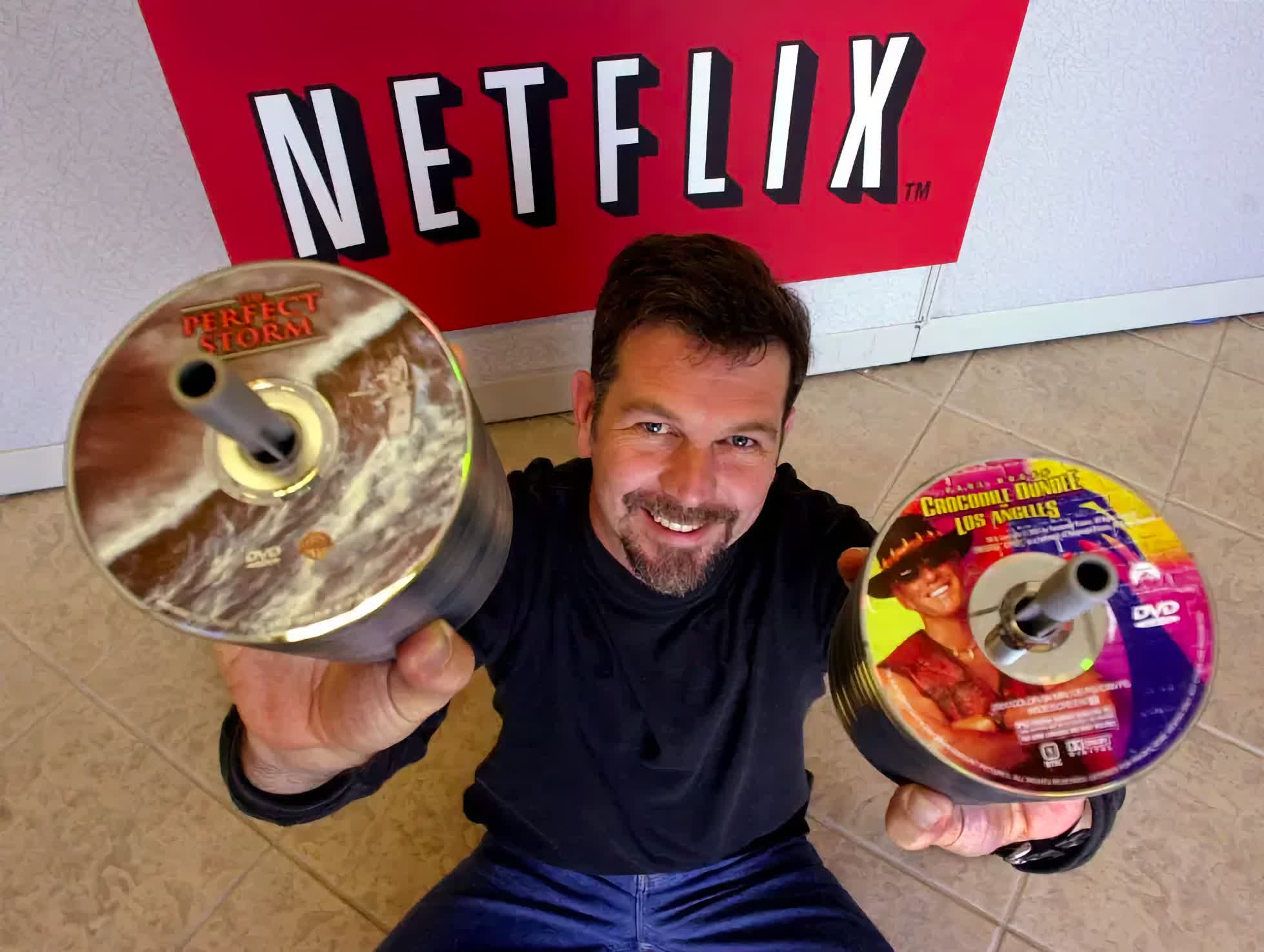
Launching a startup is no easy task, as Hastings and Randolph quickly discovered. By 2000, they had amassed some 300,000 subscribers but even still, the company was on pace to lose $57 million.
Seemingly in over their heads, the co-founders managed to arrange a meeting with Blockbuster CEO John Antioco. The pitch was straightforward: Blockbuster would buy Netflix and let their team develop and run Blockbuster's online video rental arm while Blockbuster would handle the retail stores.
The opportunity, if Blockbuster was willing, would cost them a mere $50 million. But they weren't interested in playing ball, or even entertaining a serious counter offer, and it wouldn't be the first time that Netflix narrowly avoided the chopping block.
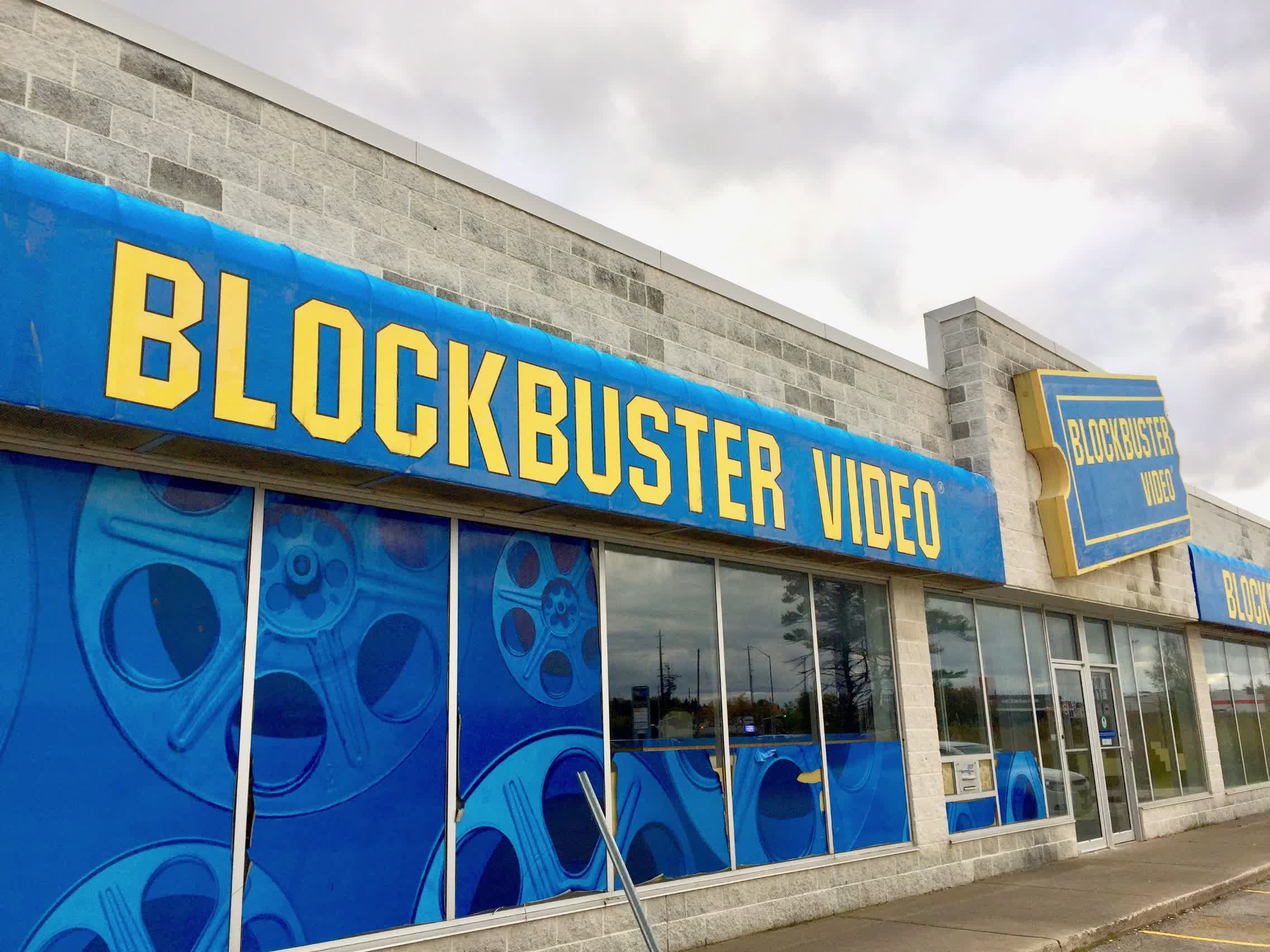
Netflix got back to work. The company continued to grow its DVD rental-by-mail business, benefiting from the falling prices of consumer DVD players. In 2002, Netflix became a publicly traded company. Two years later, co-founder Marc Randolph retired from the business.
Like Blockbuster, Netflix had been thinking a lot about how technology was inevitably going to change their business. Executives had long been interested in the idea of delivering movies over the Internet and by the mid-2000s, the technology was finally in place to make it a reality. The initial plan was to release a branded Netflix set-top box that would download movies overnight and have them ready to watch the following day.
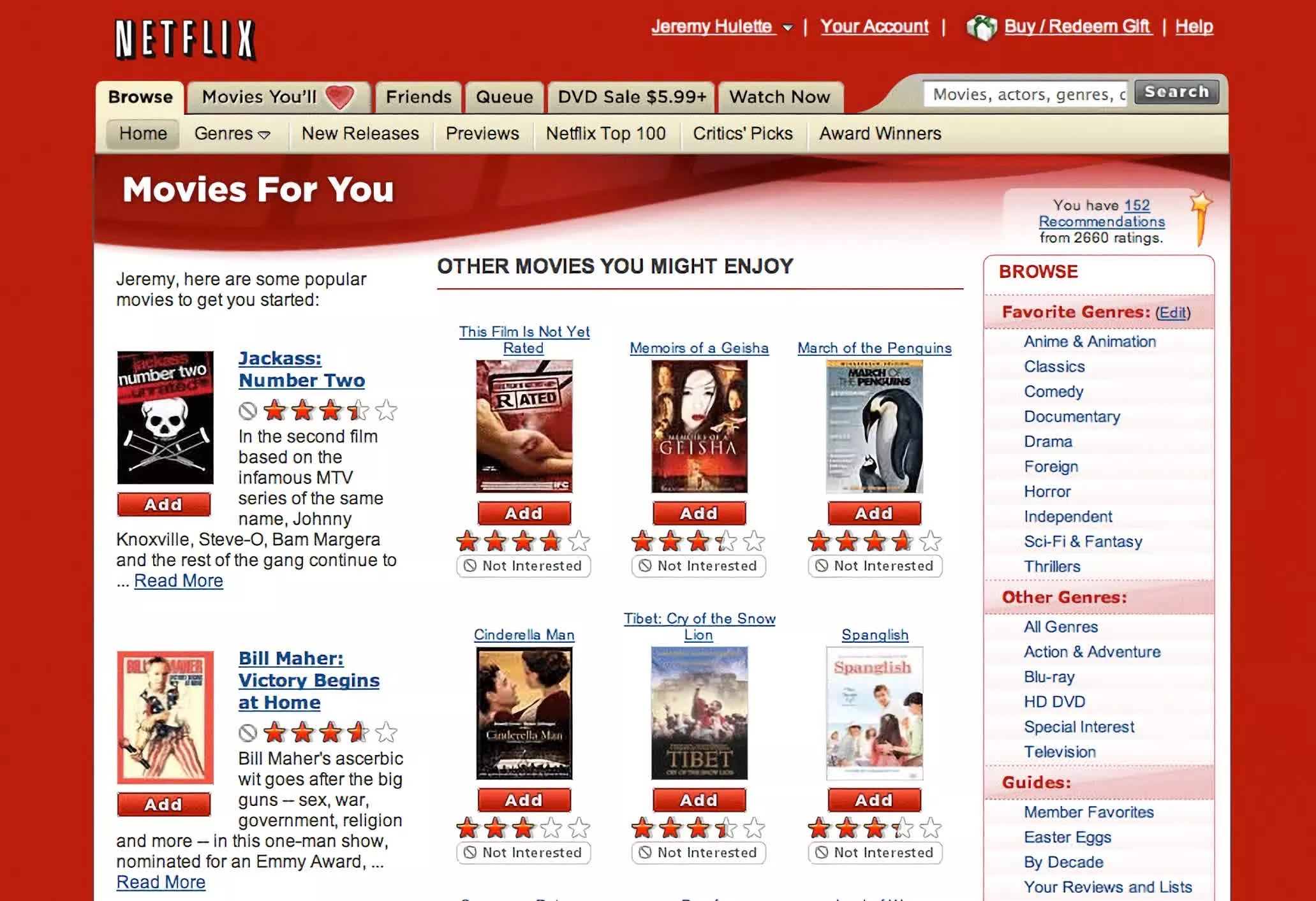
Everything was in place for the rollout, but then YouTube burst onto the scene in 2005. Netflix realized the potential of streaming video and scrapped the set-top box entirely. Two years later, they launched a streaming on-demand service with around 1,000 titles as a complementary perk for DVD-by-mail customers.
Netflix over the next several years would continue to build out its online streaming service by inking additional licensing deals with movie studios and investing heavily in its recommendation engine. Within a matter of months, the company went from being the fastest-growing customer of the US Postal Service to the largest source of web traffic in North America during peak usage hours.
It was no surprise, then, when Netflix unbundled its streaming service from the DVD-by-mail business, offering it as a standalone option for the first time in late 2010. What did catch some by surprise, however, was the unexpected price hike associated with the move. Suddenly, it'd cost 60 percent more if you were interested in both the DVD-by-mail offering and the streaming offering.
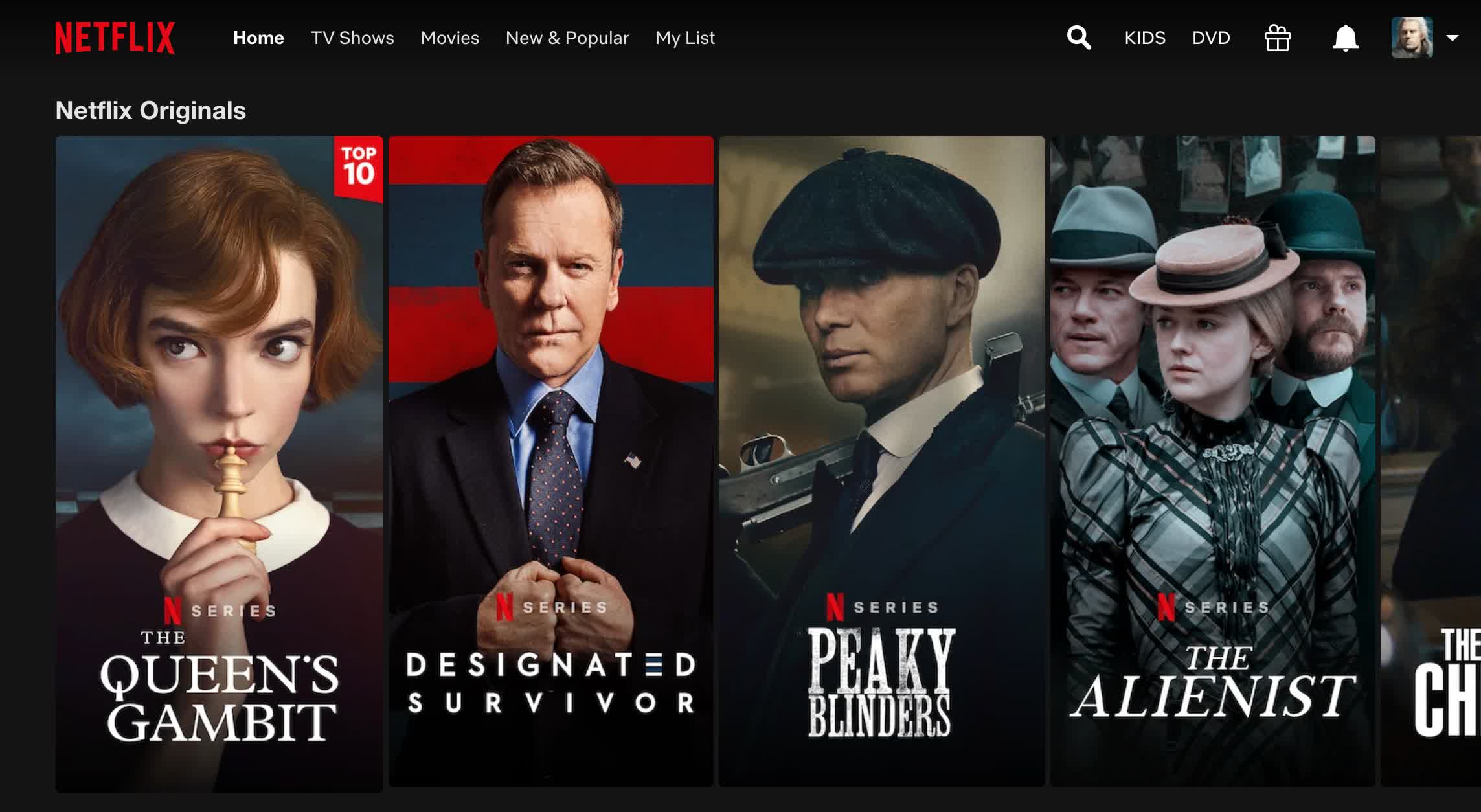
It was a huge misstep that ultimately cost the company around a million subscribers, and it wouldn't be the first flub. In September 2011, Netflix announced plans to rebrand its DVD-by-mail as an independent subsidy called Qwikster. Less than a month later, Netflix walked back the decision and elected to keep the two businesses under the same brand.
It's been mostly home runs and grand slams for Netflix ever since.
Netflix's experiment with producing original content has paid major dividends and become an industry standard and differentiator. From early hits such as House of Cards and Orange is the New Black, to instant favorites like Stranger Things, Ozark, and The Witcher. Netflix has rarely missed in this department. With shows like the CGI-based Resident Evil: Infinite Darkness in the works and the recent pickup of Cobra Kai from YouTube, Netflix's original content portfolio is looking stronger than ever and has forever changed the traditional distribution model.
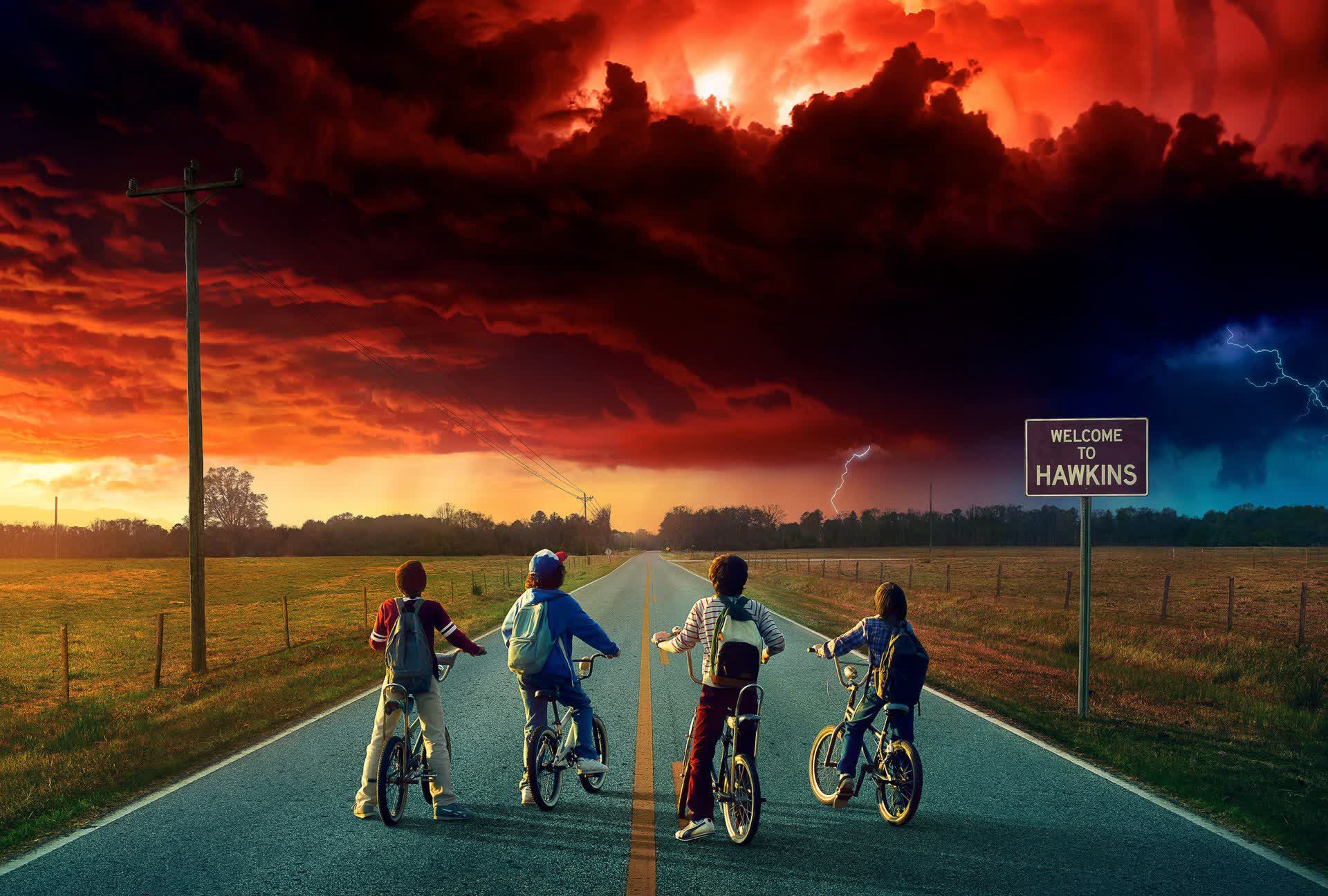
Streaming is without a doubt Netflix's bread and butter, but did you know that the company still offers DVDs by mail? Netflix brought in $212 million from its DVD arm in 2018 and shipped its five-billionth DVD in mid-2019.
What Netflix has managed to accomplish is nothing short of amazing. In less than 24 years, Netflix went from a scrappy startup to one of the world's largest media companies. As of writing, Netflix reports to have over 195 million paying subscribers around the globe and a market cap of more than $215 billion. Blockbuster, which passed on the opportunity to buy Netflix for a mere $50 million a decade earlier, filed for bankruptcy in 2010.
 NYT Connections Sports Edition hints and answers for May 18: Tips to solve Connections #237
NYT Connections Sports Edition hints and answers for May 18: Tips to solve Connections #237
 Eddie Redmayne has paid a moving tribute to Stephen Hawking
Eddie Redmayne has paid a moving tribute to Stephen Hawking
 Google will ban all cryptocurrency ads this June
Google will ban all cryptocurrency ads this June
 Android has gotten a lot safer in 2017, Google claims
Android has gotten a lot safer in 2017, Google claims
 NYT mini crossword answers for May 12, 2025
NYT mini crossword answers for May 12, 2025
 Duolingo has launched a course in Star Trek's Klingon language
Duolingo has launched a course in Star Trek's Klingon language
 YouTube CEO Susan Wojcicki talks conspiracy theories at SXSW
YouTube CEO Susan Wojcicki talks conspiracy theories at SXSW
 Russian hackers breached U.S. power plants
Russian hackers breached U.S. power plants
 NYT Connections hints and answers for May 18: Tips to solve 'Connections' #707.
NYT Connections hints and answers for May 18: Tips to solve 'Connections' #707.
 Biohacker with travel card chip in his arm fined for not having ticket
Biohacker with travel card chip in his arm fined for not having ticket
 Today's Hurdle hints and answers for May 12, 2025
Today's Hurdle hints and answers for May 12, 2025
 In startling coincidence, Stephen Hawking died on Einstein’s birthday
In startling coincidence, Stephen Hawking died on Einstein’s birthday
 Amazon tests 'brief mode' for when you don't want to hear Alexa
Amazon tests 'brief mode' for when you don't want to hear Alexa
 Facebook Lite is launching in the United States
Facebook Lite is launching in the United States
 The Anatomy of Liberal Melancholy
The Anatomy of Liberal Melancholy
 Google will ban all cryptocurrency ads this June
Google will ban all cryptocurrency ads this June
 Laura Dern joins long history of Star Wars actors making sound effects
Laura Dern joins long history of Star Wars actors making sound effects
 Google and OK Go launch new education project for classrooms
Google and OK Go launch new education project for classrooms
 Watch how an old Venus spacecraft tumbled before crashing to Earth
Watch how an old Venus spacecraft tumbled before crashing to Earth
 Apple holding event for "teachers and students" in Chicago this March
Apple holding event for "teachers and students" in Chicago this March
Microsoft's next browser might be based on ChromiumYouTube prankster Roman Atwood is skydiving on liveApple may release updated AirPods in 2019 and 2020Melania Trump sues Daily Mail over '100% false' claims about her pastGoogle’s Santa Tracker is back with more holiday fun for 2018Don't bin them: You can mail back your used Nespresso coffee podsThe 8 best new television shows of 2018Jake Gyllenhaal joins 'SpiderHow you can use a bullet journal to live a healthier lifeJoe Biden gives surprisingly candid response to protester at Clinton rallyRussian rideAirbnb asked to disclose data on 172 users so far this yearMicrosoft's next browser might be based on ChromiumLondon's nightlife is disappearing — here's why that's dangerous for the cityThere's more than one Hannukah song, y'allAdorable Japanese bunny bags make for the best kind of rabbit infestation8 absurdly expensive iPhone cases you definitely should not buy8 absurdly expensive iPhone cases you definitely should not buyMan who loves tea changes his middle name to 'YorkshireThe biggest challenge 5G faces is making sure everything works 8 Best Bose Black Friday deals: QuietComfort Earbuds II and more The Time for Art Is Now The Soundtrack of ‘Phantom Thread’ Will Outlive the Oscars UFO Drawings from the National Archives 2018 Whiting Awards: Patrick Cottrell, Fiction If Teachers Were Armed with Guns Marian Blue, the Color of Angels, Virgins, and Other Untouchable Things Wordle today: The answer and hints for November 24 Best deals of the day March 14: 9th Incarnadine, the Bloody Red of Fashionable Cosmetics and Shakespearean Poetics Women in Trees What is white feminism and how does it harm women of colour? 35+ best pet deals to shop on Black Friday In the Studio with Lorna Simpson TikTok For You page getting dull? Enter: Refresh Zoe Leonard: Archivist of Feeling 2018 Whiting Awards: Tommy Pico, Poetry David Lynch’s Night Truths 15+ Black Friday 2023 Chromebook deals at Best Buy Black Friday Sonos deals: save on Era 100, Move, Roam, and more
2.0624s , 10155.2421875 kb
Copyright © 2025 Powered by 【Denmark】,Co-creation Information Network